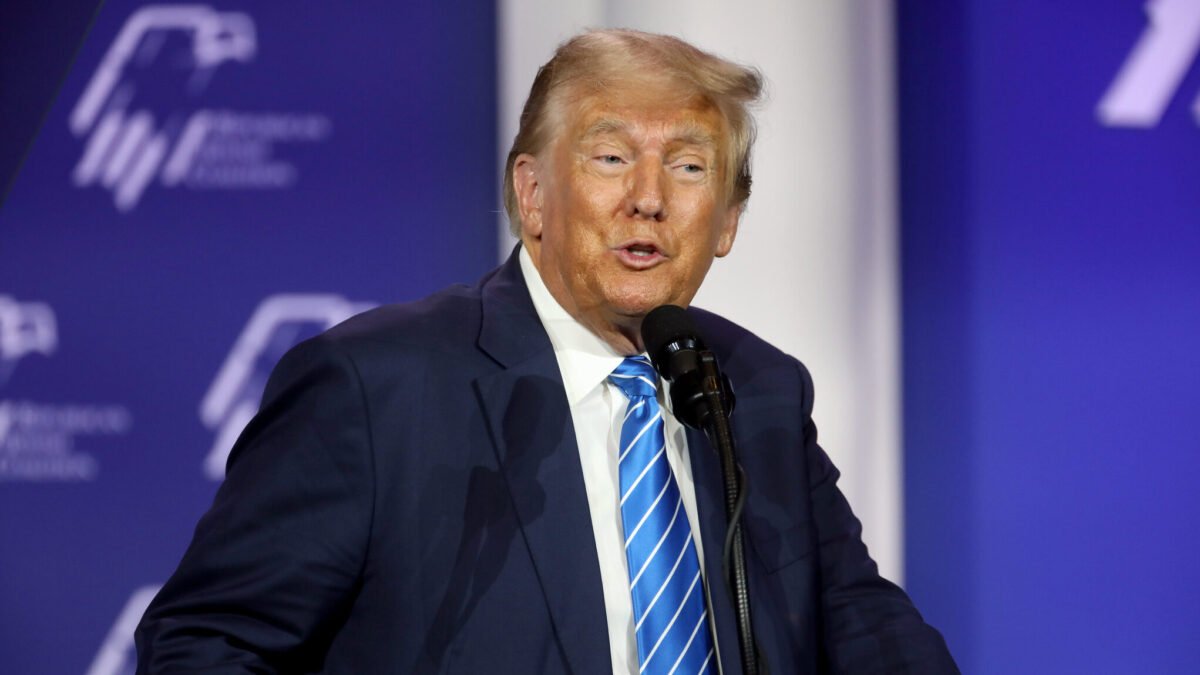A New York appeals court on Monday reduced the bond that former President Donald Trump must post while he appeals a decision that found him liable for inflating his net worth to secure loans, despite the fact that the loans were paid back and the banks involved were fully satisfied. The ruling was met with celebration from the Trump team, but it doesn’t make New York Attorney General Letitia James’ relentless lawfare campaign against the former president any less abhorrent.
The Appellate Division in Manhattan on Monday gave Trump 10 days to post a bond in the still-exorbitant amount of $175 million, down $279 million from Judge Arthur Engoron’s initial judgment. The New York Times said two sources familiar with the matter confirmed the former president would be able to post bond.
Trump reacted to the appeals court’s decision, arguing it calls into question Engoron and James’ credibility.
“Judge Engoron has refused to obey the decision of the Appellate Division relative to the Statute of Limitations. This is a confrontation between a Judge and those that rule above him – A very bad situation in which to place New York State and the Rule of Law!” Trump said in a statement.
“This is the 5th time in this case that he has been overturned, a record. His credibility, and that of Letitia James, has been shattered. We will abide by the decision of the Appellate Division, and post either a bond, equivalent securities, or cash,” the former president continued. “This also shows how ridiculous and outrageous Engoron’s original decision was at $450 million.”
While Trump can momentarily relish the fact that posting bond will put James’ plans to seize his assets on hold, the judgment doesn’t change the fact that James’ case against Trump is an obviously politicized lawfare campaign over “a fraud case in which there are no fraud victims.”
The Eighth Amendment stipulates “Excessive bail shall not be required, nor excessive fines imposed, nor cruel and unusual punishments inflicted.” The late Supreme Court Justice Ruth Bader Ginsberg summed up the importance of the Eighth Amendment’s protections, writing in a 2019 decision that “exorbitant tolls undermine other constitutional liberties.”
“For good reason, the protection against excessive fines has been a constant shield throughout Anglo-American history,” Ginsberg wrote. “Excessive fines can be used, for example, to retaliate against or chill the speech of political enemies.”
James actively campaigned on using lawfare to go after Trump, calling him an “illegitimate president.”
Trump’s team argued Engoron’s “grossly disproportionate and unconstitutional” initial judgment was likely to be overturned, and asked the appeals court to lower the bond amount or pause it altogether.
Like the other legally suspect cases brought against Trump by Democrat prosecutors and the Biden administration’s Department of Justice, James’ lawfare is kneecapping the Trump campaign by costing the candidate time and money in an election year. Forcing him to liquidate assets to post bond would cause even further damage.
What exactly is Trump “guilty” of, anyway? As my colleague Mark Hemingway noted, “the banks did their own due diligence about Trump’s finances and ability to pay back the loans and decided to give them to him. Trump paid back the loans, and everyone made money.” One of the values the former president is accused of inflating, for example, is his sprawling Mar-a-Lago estate at between $427 million and $612 million, according to Forbes.
Engoron cited a one-off local Palm Beach County appraiser that valued the property at as low as $18 million. During the trial, Trump’s legal team provided an expert’s current appraisal of the property at $1.5 billion, which Engoron dismissed as “unexplained and unsubstantiated,” according to the New York Post.
Several experts valued the property in the hundreds of millions, according to reports. Ironically, should James seize the waterfront property, she’d quickly realize it would fetch far more than Engoron’s $18 million assessment.








